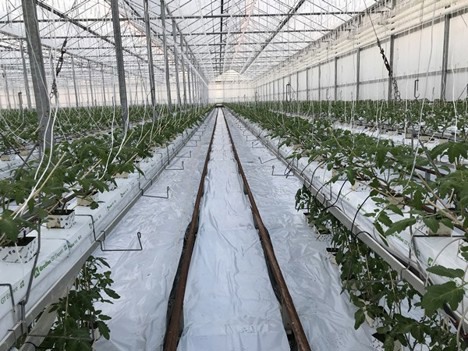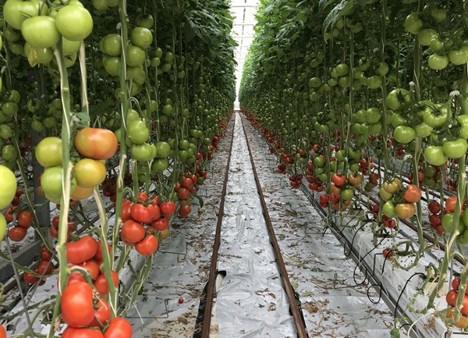Tomato Brown Rugose Fruit Virus (ToBRFV), under this acronym, hides one of the highest risks for tomato production in Europe.
The level of alertness and monitoring against this virus is high for all tomato producers; in fact, the virus' characteristics make it dangerous and very expensive to eradicate.

Since its identification in 2015 in the Middle East, much has been done to fight it, but in a few years, its spread has been exponential, demonstrating its particular virulence and dangerousness. Indeed, ToBRFV has been shown to be able to remain infectious for more than a month on greenhouse surfaces and in cultivation systems.
For many years, off-growers have adopted high-level sanitation and phytosanitary prevention practices precisely in order to combat plant diseases that could otherwise lead to huge economic losses over the years. Despite this, experience teaches us that for particularly virulent pathogens, eradication from greenhouses is very difficult and requires a lot of work.
The spread of ToBRFV is forcing everyone to raise the level of biosecurity needed in hydroponic cultivation to counter what appears to be a factor capable of putting European tomato production in crisis.
Ecofarm is an Italian company that for years has been carrying out applied research and installing ozone production systems to increase the level of biosecurity in off-site production systems, combining sustainability, effectiveness, and cost-effectiveness.
These systems are:
- Sustainable because ozone requires only oxygen from the air and little energy to be synthesized;
- Effective because it is proving very useful in eliminating viral, bacterial and fungal organisms from greenhouses and other production systems, and;
- Economical because it is automatable, low in electricity consumption,n and does not require the use of consumables.
A study carried out at the laboratories of the Scientia Terrae Research Institute, St.-Katelijne-Waver (BELGIUM) showed that the Ecofarm operating protocol for ozone treatment of irrigation water appears effective for the disinfection of ToBRFV-infected drainage water.
The result is in line with what has been achieved against other pathogens, such as Clavibacter michiganensis.

In addition to this, Ecofarm has been advising its customers for years to use ozone for vacuum disinfection of greenhouses before transplanting in order to achieve a true sanitary vacuum and avoid any cross-contamination between one crop and the next.
The results of this quantum leap in farm biosecurity management are now well established and can certainly be used to reduce the risk of ToBRFV and other pathogens, both viral and bacterial, being introduced into the greenhouse and subsequently spreading.
The double combination of vacuum treatment of the greenhouse and treatment of the irrigation system throughout cultivation lowers the risk of infection and spread. What is important in combating pathogens, however, is not only the medium, in this case, ozone, with which they are combated, but above all, the strategy applied.

The Prophylaxix protocol, an Ecofarm registered trademark, encapsulates the know-how developed over years of applied research that has resulted in a very specific use of this particular gas. The results obtained bring multiple benefits, including an increase in the biosecurity level of the greenhouse and a decrease in the risk of infection, as well as an economical management cost.
Ecofarm Storti will be exhibiting at IPM, Essen, Germany, international trade fair for horticulture, Hall 4, stand F31, from 24th to 27th January 2023.
For further information:
Ecofarm Storti srl
Via Castelletto 10
37050 Belfiore (VR)
Italy
+39 045 6134390
info@ecofarmstorti.com
www.ecofarmstorti.com
